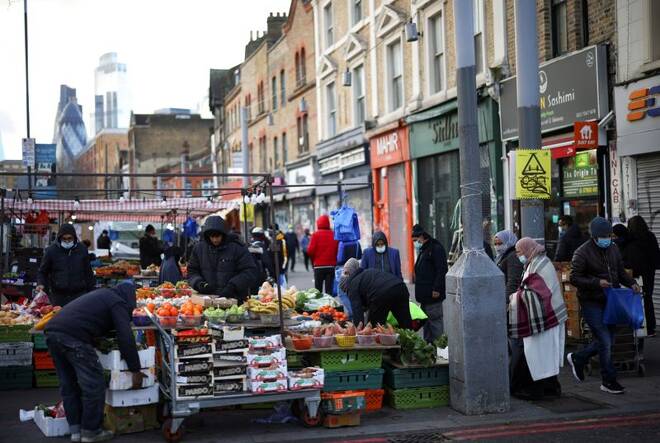Advertisement
Advertisement
UK consumer sentiment hits record low as inflation soars – GfK
By:
By David Milliken LONDON (Reuters) - British households are feeling "a sense of exasperation" about the surging cost of living which has pushed consumer sentiment to its lowest since at least 1974, according to the country's longest-running survey of household finances.
By David Milliken
LONDON (Reuters) – British households are feeling “a sense of exasperation” about the surging cost of living which has pushed consumer sentiment to its lowest since at least 1974, according to the country’s longest-running survey of household finances.
The GfK consumer sentiment index sank to a record-low -44 in August from July’s reading of -41, which was already the lowest since the survey began. Economists polled by Reuters had forecast a drop to -42.
Households’ assessment of their personal finances and the general economic situation declined, both looking back at the past 12 months and for the year ahead.
“All measures fell, reflecting acute concerns as the cost of living soars. A sense of exasperation about the UK’s economy is the biggest driver of these findings,” said Joe Staton, GfK’s client strategy director.
British consumer sentiment has declined steadily over the past year as inflation has risen sharply, climbing above 10% last month for the first time since 1982.
To date, the knock-on impact on consumer-facing businesses has been less dramatic, but the Bank of England expects further price rises will tip the economy into recession later this year.
Food prices have risen at their fastest rate since 2008, while regulated household energy bills have doubled. Industry analysts say they look set to double again to more than 4,000 pounds ($4,816.80) a year by January.
“Making ends meet has become a nightmare and the crisis of confidence will only worsen with the darkening days of autumn and the colder months of winter,” Staton said.
Separate figures from Lloyds Bank showed nine out of 14 business sectors contracted in July, up from four in June and the most since January 2021 when there was a COVID-19 lockdown.
Transport, tourism and recreation recorded the biggest falls in activity reflecting the impact of rail strikes and reduced consumer spending, Lloyds said.
($1 = 0.8304 pounds)
(Reporting by David Milliken; Editing by William Schomberg)
About the Author
Reuterscontributor
Reuters, the news and media division of Thomson Reuters, is the world’s largest international multimedia news provider reaching more than one billion people every day. Reuters provides trusted business, financial, national, and international news to professionals via Thomson Reuters desktops, the world's media organizations, and directly to consumers at Reuters.com and via Reuters TV. Learn more about Thomson Reuters products:
Did you find this article useful?
Latest news and analysis
Advertisement
